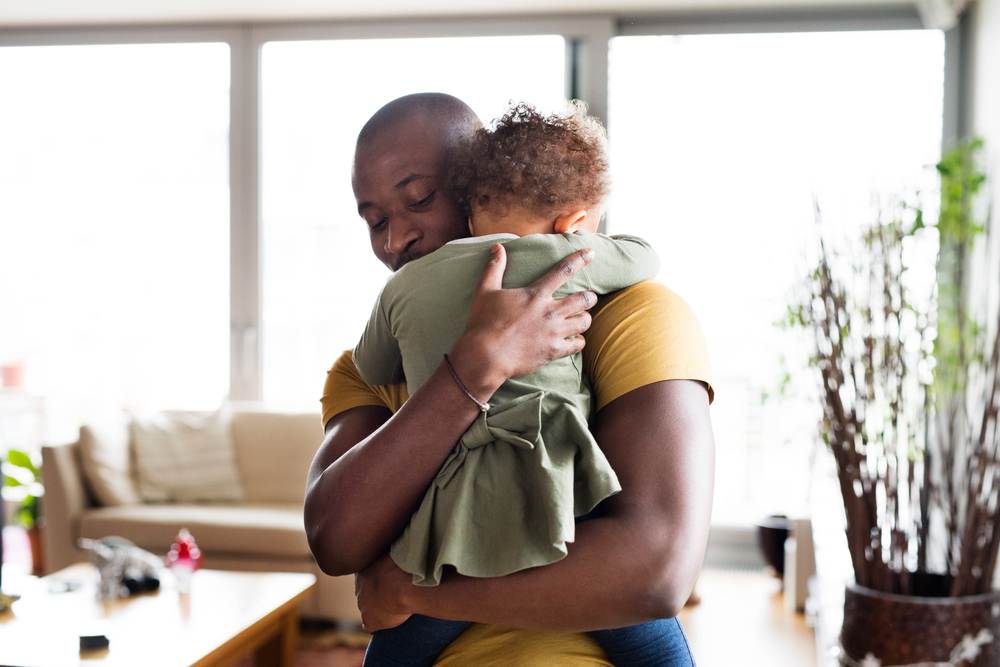Millennial Dads Spend 3 Times As Much Time With Their Kids Than Previous Generations – Study Finds

Fatherhood today looks remarkably different from just a few decades ago. The image of the emotionally distant provider has given way to a new paradigm—one where fathers are active, engaged, and deeply involved in their children’s lives. Millennial dads are leading this quiet revolution, reshaping what it means to be a father in ways that challenge longstanding societal norms.
A recent study underscores the magnitude of this shift, revealing that millennial fathers spend three times as much time with their children compared to previous generations. This change raises important questions: What’s driving this cultural transformation? And what could it mean for the future of parenting and the children who are growing up in this new reality?
The Millennial Approach to Fatherhood
Millennial fathers are rewriting the script on what it means to be a dad. Unlike previous generations, they’re stepping into their parenting roles with a level of involvement that directly challenges outdated stereotypes. Research highlights this dramatic shift, showing that millennial dads spend three times as much time with their children as fathers did in 1965. This hands-on approach reflects a broader cultural move toward more egalitarian family dynamics, where childcare and household responsibilities are more equally shared between parents.
For many millennial fathers, parenting is not just a role—it’s a core part of their identity. According to a Pew Research Center study, 57% of millennial dads view being a parent as essential to who they are, a percentage nearly identical to mothers at 58%. This alignment signals a break from past norms, where fathers were often relegated to the background of family life. By prioritizing fatherhood, millennial dads are reshaping expectations and creating a foundation for more balanced and collaborative parenting.
A New Standard of Hands-On Parenting
Millennial fathers are turning words into action, redefining fatherhood through their daily involvement in caregiving. Unlike generations past, today’s dads are not merely spectators at school events or cheerleaders on the sidelines of soccer games. They’re rolling up their sleeves and diving into the everyday responsibilities of parenting—bathing, feeding, and helping with homework.
The numbers illustrate this shift: modern fathers now dedicate an average of 8 hours per week to childcare, a significant increase from the 2.5 hours reported in the mid-1960s, according to Pew Research Center data. This hands-on commitment is setting a powerful example for their children, demonstrating that parenting isn’t a single, predefined role but an evolving and active presence in their lives. In doing so, millennial dads are reshaping family dynamics and leaving a legacy of equality and shared responsibility for future generations.
Parenting as a True Partnership
 Image source: Pexels
Image source: Pexels
Millennial dads are revolutionizing parenting by challenging outdated norms and embracing shared responsibilities. The days of fathers being mere providers while mothers handled the bulk of caregiving are fading into history. Today’s dads are stepping up in ways their own fathers might not have imagined—taking on everything from late-night feedings to supervising homework.
This partnership approach isn’t just a private matter; it’s reshaping societal expectations. Fathers are no longer seen as helpers in parenting but as equal partners, actively sharing the load. This shift doesn’t just ease the burden on mothers; it strengthens the father-child relationship, creating a more balanced and emotionally healthy family dynamic.
Breaking Gender Role Stereotypes
By diving headfirst into hands-on parenting, millennial dads are challenging traditional notions of masculinity. They’re proving that being a great dad is about far more than financial support; it’s about being an engaged, nurturing presence in their children’s lives. This evolution in fatherhood redefines strength as vulnerability, compassion, and emotional connection.
Public figures like Dwayne “The Rock” Johnson and John Legend have played a key role in this cultural shift. By sharing their parenting experiences on social media, they’ve sparked conversations about modern fatherhood and helped break down stereotypes. Their openness inspires other dads to embrace this new model of parenting, proving that being a hands-on father is not only normal but deeply rewarding.
Balancing Work and Family: The Key to Active Fatherhood
Millennial dads are proving that being present isn’t just about showing up—it’s about meaningful engagement. From handling nighttime feedings to managing school drop-offs and planning weekend adventures, their involvement is redefining the quality of parenting. This deeper commitment to hands-on fatherhood is not a fleeting trend but a transformative shift that enriches children’s lives and strengthens family bonds.
The rise of remote work and flexible schedules has played a pivotal role in enabling this shift. In 2023, data from the U.S. Census Bureau revealed that 12.5% of employees worked remotely, more than doubling from 5.7% in 2019. This flexibility gives fathers the opportunity to participate in day-to-day caregiving, whether it’s attending school events, handling bedtime routines, or simply being there when it matters most.
However, this opportunity isn’t universal. Many fathers still grapple with rigid work demands that limit their ability to balance parenting and professional responsibilities. While millennial dads prioritize creating a healthier work-life balance, achieving this on a larger scale requires systemic changes in workplace culture to support all fathers in their parenting journeys.
 Image source: Pexels
Image source: Pexels
The Benefits of Active Fatherhood
The rise of Millennial dads prioritizing time with their children isn’t just a heartwarming trend—it’s creating ripple effects that benefit everyone involved. Studies consistently show that when fathers are actively involved in their children’s lives, the emotional, social, and cognitive development of those children improves significantly. Kids with engaged dads are more likely to excel academically, build stronger relationships, and develop higher self-esteem.
Beyond the children, the effects of active fatherhood extend to the family as a whole. When dads step into nurturing roles, they help foster a sense of balance and partnership within the household. This shared responsibility not only alleviates pressure on mothers but also strengthens the marital bond, creating a healthier environment for everyone. Millennial dads are proving that love and care are actions, not just sentiments, and their hands-on involvement lays a foundation for stronger families.
Experts also highlight the emotional rewards for the fathers themselves. Engaged dads report deeper relationships with their children and a greater sense of purpose in their lives. Fatherhood is no longer viewed as a secondary role but as a central part of their identity. By breaking down outdated stereotypes and embracing emotional connection, Millennial dads are shaping not just their children’s futures, but their own as well. This new model of fatherhood is a win for all generations—one that nurtures growth, love, and resilience.
The Challenges of Modern Fatherhood
 Image source: Shutterstock
Image source: Shutterstock
While millennial dads are redefining what it means to be a father, their journey is not without significant challenges. Balancing work, family, and societal expectations often feels like a delicate act. Although remote work and flexible schedules have provided opportunities for some, many fathers are left behind in workplaces that lack robust parental leave policies or a supportive culture for active fatherhood. For these dads, the struggle to prioritize family without risking career progression remains a daunting reality.
Even as society evolves, traditional gender roles still cast a long shadow. Fathers who prioritize caregiving often face subtle biases or criticism, with their involvement frequently labeled as “helping out” rather than being an equal partner in parenting. These outdated perceptions can weigh heavily, leaving some dads grappling with guilt or a sense of inadequacy as they strive to meet both societal expectations and their children’s needs.
The Risk of Burnout
The drive to be an engaged, hands-on parent—while commendable—can also lead to exhaustion. Millennial dads often find themselves stretched thin, juggling the demands of modern parenting alongside professional and personal responsibilities. The emotional labor involved can take a toll on mental health, amplifying the pressure to excel in all areas.
Yet, many fathers are meeting these challenges head-on, drawing strength from their families, support networks, and the growing momentum for workplace and cultural change. Their resilience underscores their dedication, proving that the obstacles they face are worth overcoming for the sake of their children and the future of fatherhood.
Fatherhood, Redefined
Millennial dads are not just parenting differently; they are transforming the very essence of what it means to be a father. By devoting more time and emotional energy to their children, they are breaking free from outdated stereotypes and building stronger, more connected families. This new generation of dads has shown that fatherhood is not about sacrifice but about presence, intention, and love.
Their commitment to active parenting is reshaping family dynamics and inspiring a cultural shift that values caregiving as much as it does providing. These fathers are not only enriching the lives of their children but are also setting a powerful example for future generations, proving that the most enduring legacies are built not on what we give but on how we show up.
As we reflect on this evolution, it’s clear that Millennial dads have ushered in a new era of fatherhood—one defined by compassion, equality, and active engagement. They remind us that the best way to shape the future is to be fully present today. This redefinition of fatherhood is a call to action for all of us to support, celebrate, and continue building a world where every father has the opportunity to be the dad they aspire to be.
Featured image from: Shutterstock
Loading...






